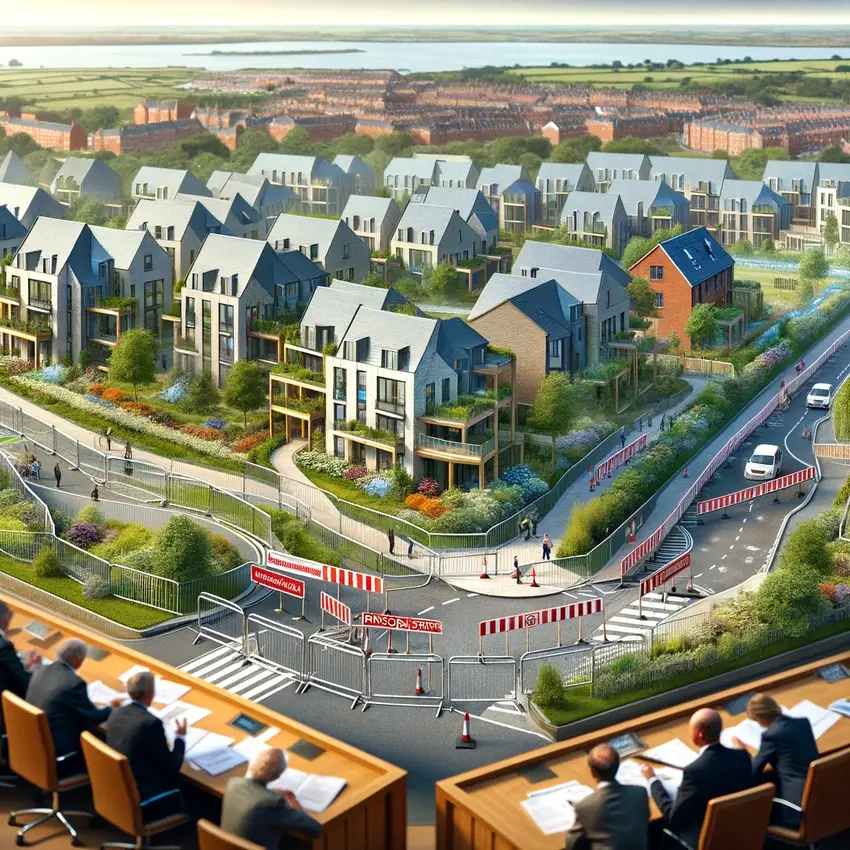Friday, April 12, 2024

The proposed housing development at Nunthorpe Grange was recently derailed due to unresolved issues regarding pedestrian access, a critical aspect for sustainable urban planning. The failure to secure a ‘ransom strip’ of land necessary for pedestrian pathways exemplifies a broader challenge in the integration of sustainability into housing projects. Middlesbrough Council’s planning committee was informed that despite considerable efforts by Persimmon Homes to refine the project, the absence of an agreement on pedestrian access between the development site and Nunthorpe Gardens thwarted the initiative.
Owned by three different entities, the ransom strip’s acquisition was crucial for the development. Persimmon Homes attempted negotiations, but the landowners, including two private property owners and Taylor Wimpey, were unwilling to sell. This stalemate highlighted the difficulties developers face when essential land acquisitions are blocked by private interests. Although Persimmon proposed an alternative footpath alongside the A1043, this solution was deemed inadequate by highways officers and unsafe for community connectivity.
The community’s reaction, articulated by the Chair of Nunthorpe Parish Council, Adrian Walker, criticized the proposed alternatives as unrealistic and unsafe, emphasizing the lack of provision for sustainable travel within the development plans. Further objections arose concerning the impact of the development on neighboring properties and local infrastructure, including concerns about loss of light and the placement of a pumping station near residential properties.
The Nunthorpe Grange case serves as a poignant lesson for global tourism and urban development sectors in balancing development with community needs and environmental considerations. Sustainable tourism fundamentally relies on integrating such projects seamlessly into the local infrastructure, ensuring accessibility and minimal environmental impact. This scenario underlines the importance of comprehensive planning and community engagement in development projects to foster sustainability and reduce reliance on automobiles.
The unanimous decision by the council to refuse the development plans based on sustainability concerns reflects a growing recognition of the need for more thoughtful, community-integrated planning. It underscores the necessity for developers to anticipate and address potential barriers in their projects, particularly when they involve essential services and infrastructure. The case of Nunthorpe Grange is a clear indicator that successful urban development must harmonize profit motives with the principles of sustainable and community-friendly design.
Tuesday, April 30, 2024
Monday, April 29, 2024
Tuesday, April 30, 2024
Tuesday, April 30, 2024
Monday, April 29, 2024
Tuesday, April 30, 2024
Tuesday, April 30, 2024